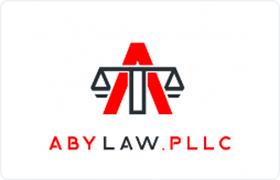Jackson RICO Act Lawyer, Mississippi
Sponsored Law Firm
-
 x
x

Click For More Info:
-
Abby Law, PLLC
403 B Towne Center Blvd Suite 102 Ridgeland, MS 39157» view mapCriminal Defense Law Get the Legal Support You Need
If you need an experienced litigation attorney, look no further than Aby Law, PLLC. We are a trusted general practice law firm in Ridgeland, MS.
800-953-2840
Not enough matches for Jackson RICO Act lawyer.
Below are all Jackson Criminal lawyers.
Bradley Clanton
✓ VERIFIEDA veteran attorney with years of “big firm” experience, who has opened his own law practice to fight for the justice that every man and woman dese... (more)
Bradley S. Clanton
✓ VERIFIEDA veteran attorney with years of “big firm” experience, he has opened his own law practice to fight for the justice that every man and woman deser... (more)
Cynthia A. Stewart
✓ VERIFIEDFor over 30 years, Cynthia A. Stewart has been practicing law with the goal of helping clients across the community with their legal needs, particular... (more)
Mark Hutchison
✓ VERIFIEDI am a former assistant city prosecutor who has been practicing for over 20 years and have represented hundreds of clients. We are primarily a crimina... (more)
Robert Bryan Ogletree
✓ VERIFIEDRobert Ogletree has built a diverse practice representing both corporations and individuals. Mr. Ogletree's jury trials include cases involving medic... (more)
FREE CONSULTATION
CONTACTLindsey Ann Hill
FREE CONSULTATION
CONTACT Heather Aby Ridgeland, MS
Heather Aby Ridgeland, MS Practice AreasExpertise
Practice AreasExpertise





